In Kenya, the right to access information is recognised and safeguarded under Article 35 of the Constitution, and in several statutory legislations, key amongst them being under Section 96 of the County Government Act, 2012. Further, the provisions of Article 2 allows the application of international and regional instruments and conventions on Access to information including African Charter on Human and People’s Right and the International Convention on Civil and Political Rights.
The GIZ Strengthening Good Governance Programme recognises the right to access information as one of the most fundamental rights. This is due to its central role in realising other rights, good governance, and democracy through promoting transparency and accountability.
A democratic state is one that adheres to the principle of good governance, principles that require that leaders are held to account by the citizenry. This requires the availability of information. Leaders at all levels should be kept accountable. Provision of information will ensure that citizens follow the actions and programmes of the leadership, participate in them, critique them and consequently contribute to more people-centred and sustainable socio-economic development.
In the context of devolution which has led to availability of more resources at the local level, the success of decentralisation requires that citizens have all the relevant information on the governance and development processes taking place at the local level to enable them to engage meaningfully. Without information, devolution risks perpetuating the challenges associated with the centralized system of governance, particularly corruption. The right to access information plays a significant role in implementing an effective anti-corruption strategy by promoting transparency, disclosure, and facilitating information gathering and access. Good governance principles cannot be advanced unless the existing legislation empowers citizens and enables them to participate in public affairs.
Kenya has arguably established a robust policy and legal framework on access to information evidenced by enactment of the Access to Information Act, the Public Procurement and Asset Disposal Act, 2015 and the Public Procurement and Asset Disposal Regulations of 2020 among others, all of which contain provisions on transparency. Additionally, Kenya’s commitments under the Open Government Partnership, National Action Plan III and IV, and Executive Order No.2 of 2018, are further substantial policy declarations confirming the positive strides, however, there are still gaps in entrenching these best practices in most public institutions. Delays in operationalization of the regulation on access to information, and lack of a comprehensive policy and legislative framework devoted to access to information are major additional setbacks. As a result, a lot remains unclear including actual procedures and guidelines to guarantee realization of the Constitutional right on access to information.
In this regard, the GIZ Strengthening Good Governance Programme is committed to supporting efforts by stakeholders and particularly the Commission on Administrative Justice (CAJ) as the mandated oversight agency on access to information, through support on development and strengthening procedures and guidelines on access to information enforcement, public awareness creation and support in implementation of initiatives aimed at advancing the effective oversight on access to information law implementation.







Leave a Reply